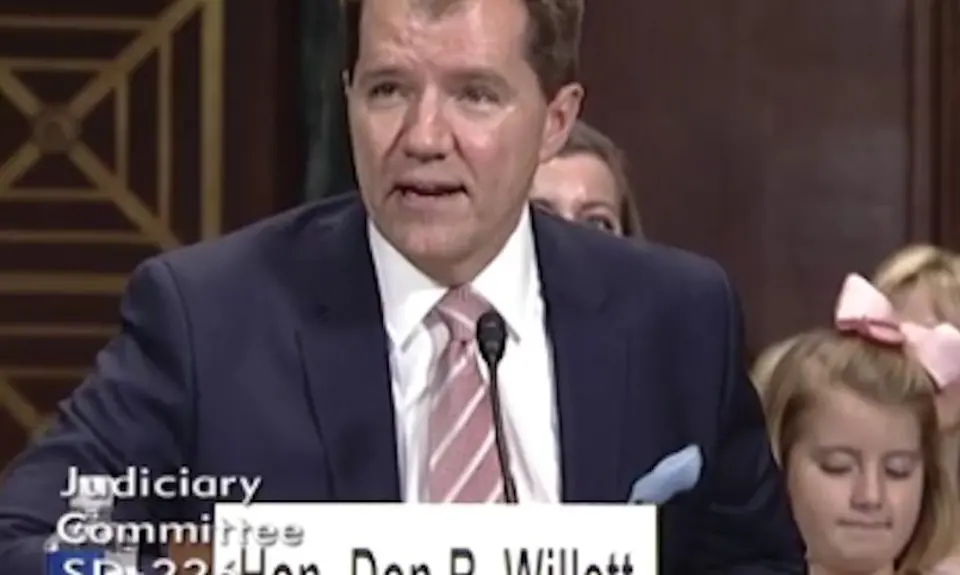“Confirmed Judges, Confirmed Fears” is a blog series documenting the harmful impact of President Trump’s judges on Americans’ rights and liberties. Cases in the series can be found by issue and by judge at this link.
Trump Fifth Circuit judges Don Willett and Andrew Oldham reversed a district court and dismissed a racial discrimination claim an African American man brought against officials in the Mississippi Secretary of State’s office. A strong dissent by a George W. Bush appointee criticized the majority because it “deviates” from more than 30 years of past precedent by “announcing a new standard” in such cases. The March 2020 ruling was in Jones v. Hosemann.
Kenneth Jones is an African American man who worked for the Mississippi Secretary of State’s office. After nearly 10 years of experience on the job, he applied for a promotion, but was told he was not the “right fit” and was turned down. Instead, a white person with “significantly less career experience and education” got the job.
Jones filed a discrimination complaint with the Equal Employment Opportunity Commission (EEOC). The EEOC found probable cause that the Secretary’s office had violated the anti-discrimination provisions of Title VII. Several months later, it was reported that Jones had “violated” office policy by “being in the building after hours,” and he was fired.
Jones then filed a lawsuit in federal court against three individuals at the Secretary’s office whom he alleged had been involved in the discriminatory actions against him. After preliminary motions, the district court allowed three of Jones’ charges to go forward, including his Title VII claim and his contention that the three employees had violated his constitutional rights under 42 U.S.C. 1983, an important post-Civil War era law, by discriminating and retaliating against him. The three employees filed an immediate appeal of the 1983 decision, claiming qualified immunity from liability.
In a 2-1 unsigned opinion, Willett and Oldham reversed the district court. They did not rule on qualified immunity grounds, but instead held that even if all the facts alleged by Jones were true, the 1983 claim should be dismissed as a matter of law. Even though they conceded that Jones’ complaint alleged enough facts to state a claim under Title VII, they claimed that a plaintiff must allege which “particular actions by the individual defendants” caused harm under 1983 and that because Jones’ complaint had failed to do so, it should be dismissed.
Judge Jennifer Walker Elrod, who was nominated by President George W. Bush, strongly dissented. She listed seven specific cases since 1980 in which the Fifth Circuit had ruled that “the elements” of a proper employment discrimination case under Title VII and 1983 are “the same” and criticized the majority because it had improperly “deviated” from the court’s “well-established rule” and announced a “new standard” for such cases.
Even under that standard, Elrod went on, Jones had “adequately pled the individuals’ link to his termination,” specifying that they had been in charge of the internal committee that concluded that he should be fired. And even if Jones’ complaint was not sufficient under the majority’s “new rule”, she further stated, the case should have been remanded so that Jones could amend his complaint. “Otherwise,” she pointedly noted, the court would be “punishing a plaintiff for rightly following decades of our precedent.”
But that is precisely what Willett and Oldham’s decision did. While Jones can proceed with his other discrimination claims but because Willett and Oldham effectively overruled 30 years of past precedent Jones and others seeking justice for similar racial discrimination can no longer rely on the federal 1983 law, which is particularly important because it covers other violations of constitutional rights that are not covered by Title VII, such as violations of the First Amendment.
NOTE: In June, 2020 the court issued a revised opinion in which Willett and Oldham still dismissed Jones’ 1983 claim, though on slightly different grounds. Judge Elrod continued to dissent, adhering to her conclusion that the majority had deviated from past precedent and improperly adopted a “new standard” for 1983 claims.
